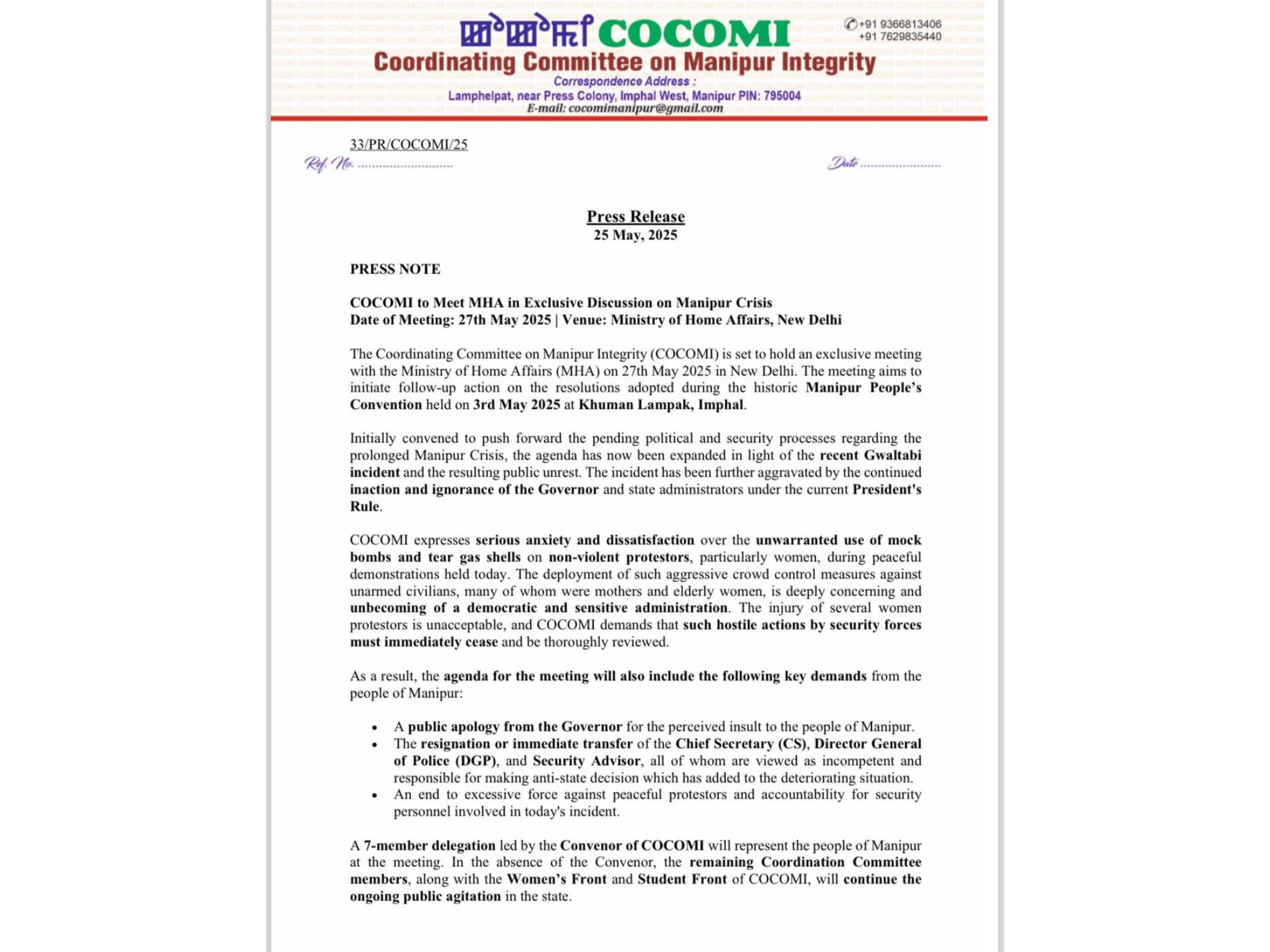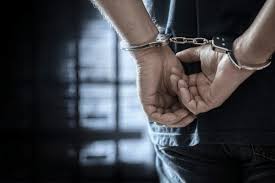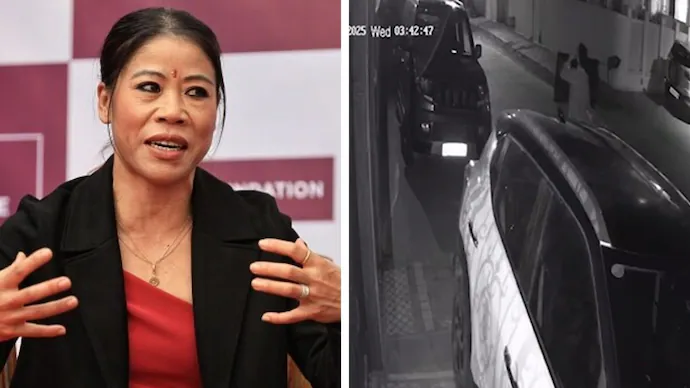COCOMI to Meet MHA Over Manipur Crisis; Condemns Use of Tear Gas on Protesters
Summary of the Incident
On May 25, 2025, the Coordinating Committee on Manipur Integrity (COCOMI) announced its plan to meet with the Union Ministry of Home Affairs (MHA) on May 27 to address the escalating crisis in Manipur. This decision follows a recent incident in Imphal where security forces allegedly used tear gas and mock bombs on peaceful protesters, including women and elderly citizens, resulting in several injuries. COCOMI has condemned the use of excessive force and is demanding a public apology from the Governor, as well as the resignation or transfer of key administrative officials. The organization has vowed to continue its agitation until the authorities acknowledge and address the people’s demands.
Understanding the Unrest: A Deep Dive into Manipur’s Identity Crisis
The Gwaltabi Incident: A Spark Ignites
On May 20, 2025, during the Shirui Lily Festival, a Manipur State Transport bus carrying journalists was reportedly stopped at the Gwaltabi checkpoint by personnel from the 4th Mahar Regiment. The security forces allegedly demanded that the word “Manipur” be concealed on the bus’s windshield, citing security concerns. This act was perceived by many as an affront to the state’s identity, igniting widespread outrage among the populace.
COCOMI’s Stand: Defending Identity
COCOMI, a prominent civil society organization in Manipur, swiftly condemned the incident, viewing it as an attempt to erase the state’s identity. They demanded a public apology from Governor Ajay Kumar Bhalla and the resignation of key administrative officials, including the Chief Secretary, Security Advisor, and Director General of Police. COCOMI also called for the formation of an independent inquiry committee, led by a retired High Court judge, to investigate the matter thoroughly.
The Protests: From Peaceful to Turbulent
On May 25, thousands of women, under COCOMI’s leadership, marched towards the Raj Bhavan, carrying placards and chanting slogans demanding justice. The protest, which began peacefully, escalated when security forces deployed tear gas and smoke bombs to disperse the crowd, resulting in injuries to several women. COCOMI accused the administration under President’s Rule of using excessive force against unarmed civilians, stating that such actions are unacceptable and unbecoming of any sensitive and democratic government.
Boycott and Civil Disobedience: A Unified Front
In response to the Governor’s silence, COCOMI announced a complete boycott of Governor Bhalla, urging citizens to refrain from engaging with any events or functions involving him. They also initiated a civil disobedience movement, encouraging the public to withdraw cooperation from central government offices and participate in peaceful protests, including rallies, torch processions, and sit-ins across the state.
Government’s Response: Steps Taken
In the wake of the controversy, Governor Bhalla constituted a two-member committee to investigate the incident, comprising Home Commissioner N Ashok Kumar and IT Secretary Th Kirankumar Singh. The committee has been tasked with submitting its findings within 15 days and recommending measures to prevent such occurrences in the future.
Broader Context: Identity Movements in India
Manipur’s protests are part of a larger tapestry of identity-based movements across India, where communities seek to preserve their cultural heritage and autonomy. Similar sentiments have been observed in regions like Assam, Nagaland, and Kashmir, highlighting the complex interplay between regional identities and national governance.
Looking Ahead: Potential Outcomes
The resolution of this crisis hinges on open dialogue and mutual understanding. Acknowledging the concerns of the people and taking concrete steps to address them can pave the way for reconciliation. Failure to do so may exacerbate tensions and lead to prolonged unrest.
Frequently Asked Questions
Q1: What triggered the recent protests in Manipur?
A: The protests were sparked by an incident on May 20, 2025, where security personnel allegedly forced the removal of the word “Manipur” from a state transport bus carrying journalists, leading to widespread outrage over perceived threats to the state’s identity.
Q2: Who is leading the protests?
A: The Coordinating Committee on Manipur Integrity (COCOMI), a prominent civil society organization, is at the forefront of the protests, advocating for the state’s identity and autonomy.
Q3: What are the protesters’ main demands?
A: The protesters are demanding a public apology from Governor Ajay Kumar Bhalla, the resignation of key administrative officials, and the formation of an independent inquiry committee to investigate the incident.
Q4: How has the government responded to the protests?
A: Governor Bhalla has formed a two-member committee to investigate the incident and recommend preventive measures. However, protesters have rejected this move, calling for an independent inquiry.
Q5: What is the significance of the protests in the broader Indian context?
A: The protests highlight ongoing tensions between regional identities and central governance in India, reflecting a broader struggle for cultural preservation and autonomy among various communities.






